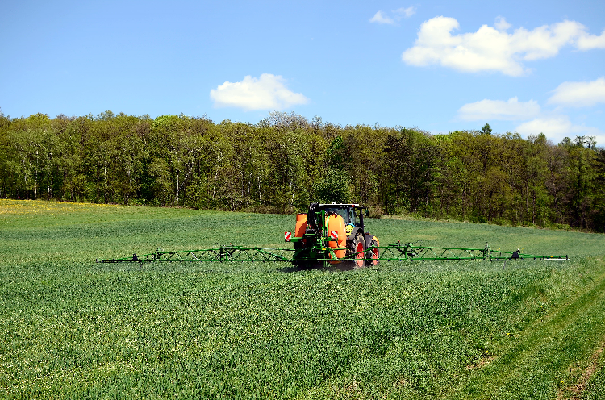Are your pesticides legal? Why knowing whats in your store is important.
While the withdrawal of some active ingredients can be very well publicised, this is not always the case particularly those less commonly used. It is therefore well worth checking the status of all chemicals in the store at least once a year if not more.
All pesticides authorised for use in the UK have a unique product registration number issued by the Chemicals Regulations Division (CRD) of the Health and Safety Executive. For products first authorised before 1 July 1999, this is known as a MAFF number, for those authorised after this date it is a MAPP number and will be clearly visible on the label. This number can then be entered into the Pesticide Register Database. The database can be used to find out various information relating to the pesticide including crucially the product expiry date for the safe disposal, storage and use of a pesticide, with the ability to refine searches to include products with upcoming expiry dates.
Pesticides with upcoming expiry dates

If pesticides in the store are found that have an expiry date in the near future, there are several options open to the producer.
- Use it on the crop as intended.
- Use slightly different timings should the date be during the growing season.
- Substitute for other chemicals in other crops if its use is approved.
- Ask the supplier or manufacturer if they can take back unused stock.
- Take advantage of any amnesty schemes if available.
- Collection and disposal by a licensed waste contractor. This can be expensive however as it is deemed special waste.
Pesticides that are past their expiry date
It is illegal to store pesticides which have exceeded their expiry date for safe storage and usage. Should any be found in store these are also classified as special waste and require to be disposed of through an authorised contractor.
In addition to the above other reasons for disposing of concentrated pesticides include:
- Pesticides that have lost their labels
- Pesticides with deteriorating or damaged containers
- Pesticides that can no longer be used on the farm e.g. due to a change in cropping.
What is the special waste disposal process?
Pesticide concentrates represent a significant risk to both human health and the wider environment. This type of waste is there very tightly controlled and it is the producer's responsibility to ensure that the person who takes your waste is authorised and licensed by the Scottish Environment Protection Agency (SEPA) to take it and can transport it safely, and that it will be safely disposed of or recycled.
Once disposal has been agreed with a contractor, the producer must obtain a consignment note from SEPA. This must then be completed with SEPA given at least 72 hours of notice before the movement or disposal of the pesticides with no movement permitted until this period has passed. In the interim the producer is also required to ensure that the pesticides remain in their chemical store (i.e. where they are secure and where any spills can be contained).
Once the 72 hours notice period is expired the pesticides can be moved to their final destination for disposal with both the producer and the contractor keeping copies of the consignment note for 3 years.
Read our Pesticide Information Note: Pesticide Containers - Cleaning & disposal
Need to Contact SEPA? Call the Hotline 0800 80 70 60
Sign up to the FAS newsletter
Receive updates on news, events and publications from Scotland’s Farm Advisory Service
